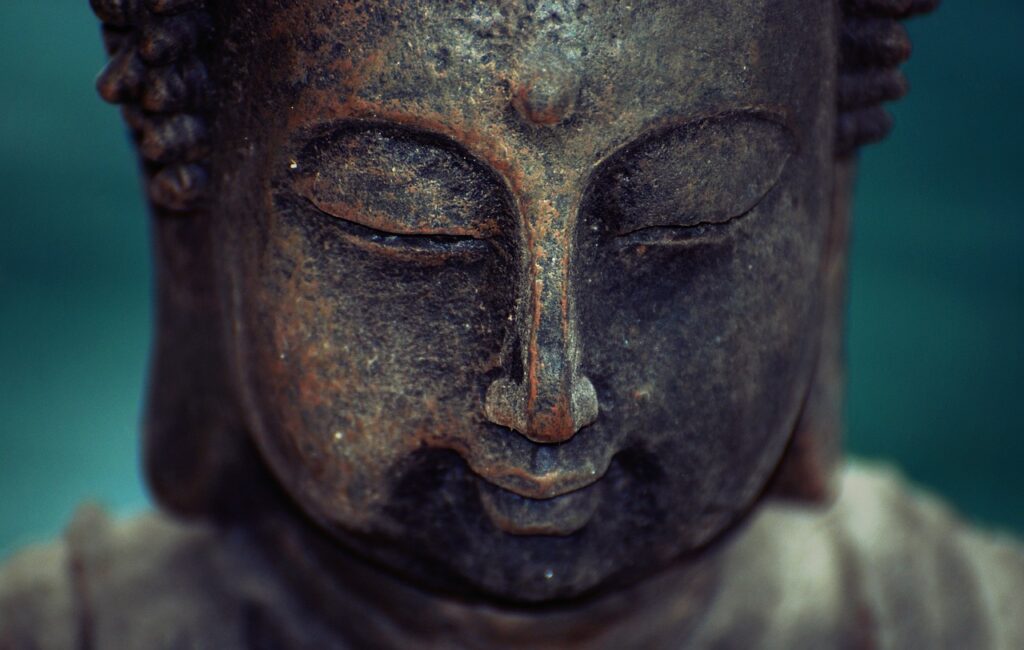
Introduction: In our fast-paced and stress-filled lives, achieving restful sleep can sometimes feel elusive. Fortunately, meditation offers a natural and effective solution to promote better sleep. By calming the mind, reducing stress, and fostering relaxation, meditation can help create the ideal conditions for deep and rejuvenating sleep. In this article, we will explore the benefits of meditation for sleep and delve into specific meditation techniques that can enhance your sleep quality. Whether you struggle with falling asleep, staying asleep, or simply want to optimize your sleep experience, these practices will guide you on your path to a peaceful and restorative night’s sleep.
- Understanding the Sleep-Stress Connection: Before diving into the benefits of meditation for sleep, it’s important to understand the relationship between sleep and stress. Chronic stress disrupts our sleep patterns, leading to difficulties in falling asleep or staying asleep. The mind remains active and restless, hindering the transition into a deep and restful sleep. Meditation acts as a powerful antidote to stress by reducing the activity of the sympathetic nervous system and activating the relaxation response. By incorporating meditation into our bedtime routine, we can effectively counteract stress and create the optimal conditions for a good night’s sleep.
- Creating a Bedtime Meditation Routine: Establishing a consistent bedtime meditation routine is key to reaping the sleep-enhancing benefits of this practice. Designate a quiet and comfortable space where you can meditate before bed. Set aside a specific time each night, allowing yourself 10 to 15 minutes for meditation. Consistency is crucial to signal to your mind and body that it’s time to unwind and prepare for sleep. Consider incorporating other relaxation techniques into your routine, such as dimming the lights, using aromatherapy, or engaging in gentle stretches before meditation. By creating a peaceful and inviting environment, you enhance the effectiveness of your bedtime meditation practice.
- Mindfulness Meditation for Sleep: Mindfulness meditation, a practice focused on non-judgmental awareness of the present moment, is highly effective for improving sleep quality. Begin by finding a comfortable position, either sitting or lying down. Close your eyes and bring your attention to your breath, allowing yourself to fully immerse in the sensations of each inhalation and exhalation. As thoughts or distractions arise, gently redirect your focus back to the breath. Cultivate a sense of deep relaxation and acceptance, letting go of any tension or worries. Mindfulness meditation helps train the mind to let go of racing thoughts and enter a state of calm, setting the stage for a peaceful night’s sleep.
- Progressive Muscle Relaxation: Progressive muscle relaxation is a technique that involves systematically tensing and releasing different muscle groups to promote physical and mental relaxation. Begin by finding a comfortable position and take a few deep breaths to centre yourself. Starting from your toes, gradually tense the muscles in each body part, holding the tension for a few seconds before releasing and allowing the muscles to relax completely. Move slowly up your body, focusing on each area, including your legs, abdomen, arms, shoulders, and facial muscles. Progressive muscle relaxation helps release physical tension, calming the body and preparing it for a more restful sleep.
- Guided Imagery and Visualization: Guided imagery and visualization techniques can transport the mind to tranquil and peaceful settings, promoting relaxation and easing the transition into sleep. Find a quiet and comfortable place to sit or lie down. Close your eyes and imagine yourself in a serene natural environment, such as a peaceful beach, a calming forest, or a gentle meadow. Engage your senses by envisioning the sounds, smells, and sensations associated with your chosen setting as vividly as possible. Allow yourself to fully immerse in the peaceful imagery, experiencing a sense of tranquillity and calm. You can either create your own visualization or use pre-recorded guided imagery meditations available online or through meditation apps. Guided imagery and visualization help redirect the mind away from stressors, promoting a sense of relaxation that paves the way for deep and restorative sleep.

- Breath Awareness and Counting: Breath awareness and counting meditation is a simple yet effective technique for quieting the mind and inducing a state of relaxation conducive to sleep. Find a comfortable position and close your eyes. Shift your attention to your breath, observing each inhalation and exhalation without trying to modify or control it. As you breathe in, mentally count “one,” and as you exhale, count “two.” Continue this pattern, counting up to ten and then starting again from one. If your mind wanders or you lose count, simply return to one and begin again. This practice helps anchor your attention to the breath, soothing the mind and promoting a state of tranquillity that aids in falling asleep
- Body Scan Meditation: Body scan meditation is a practice that involves systematically bringing awareness to different parts of the body, promoting relaxation and releasing tension. Find a comfortable position, either lying down or sitting. Close your eyes and begin by bringing your attention to your toes. Gradually move your attention up through each body part, noticing any areas of tension, discomfort, or sensation. As you encounter areas of tension, consciously release the tension with each exhale, allowing the muscles to relax and soften. This process continues through your feet, legs, abdomen, chest, arms, neck, and head. Body scan meditation helps release physical and mental tension, creating a state of deep relaxation that supports a restful night’s sleep.

Conclusion: Meditation offers a natural and effective approach to improving sleep quality and promoting overall well-being. By incorporating mindfulness, progressive muscle relaxation, guided imagery, breath awareness, and body scan meditation into your bedtime routine, you can create a tranquil environment and train your mind to release stress and embrace deep relaxation. Consistency and patience are key as you embark on this journey towards better sleep. With regular practice, you can cultivate a calm and peaceful mind that sets the stage for restful nights and energized mornings. Embrace the power of meditation to enhance your sleep and awaken to a renewed sense of vitality each day.





